

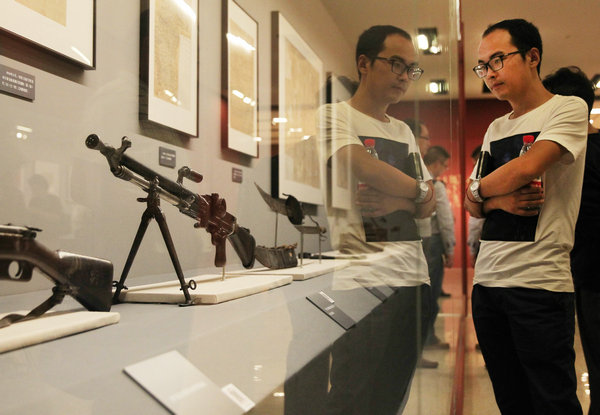
The National Museum of China is hosting an exhibition of the Red Army's Long March.[Photo by Jiang Dong/China Daily]
The ongoing exhibition shows dozens of posters and notices that the Red Army distributed during the march. Through them, the Party communicated to the people its goals and policies.
The manuscript Lovely China has moved many viewers. Red Army division commander Fang Zhimin wrote the piece to express his longing for China's better future when he was imprisoned by the Kuomintang in 1935. Fang was later executed at the age 36.
He wrote that the country would boast dynamic inventions and daily progress in the future where "joy replaces sadness, prosperity replaces poverty ... enchanting gardens replace the wasteland".
Jiang, the curator, says the exhibition also celebrates brotherhood, which was a Long March value. The Party leaders and soldiers supported one another while encountering difficulties during the march.
The testaments on show include a woolen blanket given to a wounded soldier by Wu Huan, an army officer who died in battle at the age of 28, and an oil lamp which Lin Boqu, a high-ranking Party member, often used to light rough paths for soldiers.
Lin, who was 48 when the Long March began, had a horse which he seldom rode that he gave to soldiers to carry supplies.
A glass eyecup that's exhibited was one of the devices military doctor Fu Lianzhang used to treat soldiers during the march. Fu, who was working at a Christian hospital before the march, became a Communist and trained soldiers in basic medical treatments.
 |
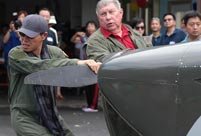 Home-made plane completes test flight in Chicago
Home-made plane completes test flight in Chicago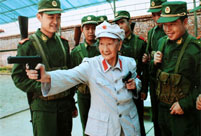 The untold stories of women in the Long March
The untold stories of women in the Long March Female soldiers on Frigate Jingzhou
Female soldiers on Frigate Jingzhou Top 10 most beautiful Chinese athletes in Rio
Top 10 most beautiful Chinese athletes in Rio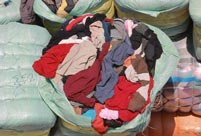 Shenzhen seizes 549 tons of illegally smuggled clothing
Shenzhen seizes 549 tons of illegally smuggled clothing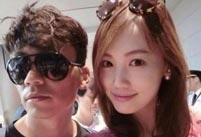 Chinese actor Wang Baoqiang divorces wife, fires manager
Chinese actor Wang Baoqiang divorces wife, fires manager Hangzhou: host city of G20 Summit
Hangzhou: host city of G20 Summit New hovercrafts debut in landing exercise
New hovercrafts debut in landing exercise Woman sets Guinness World Record with 17-month-long pregnancy
Woman sets Guinness World Record with 17-month-long pregnancy Top 10 livable Chinese cities
Top 10 livable Chinese cities Top 20 hottest women in the world in 2014
Top 20 hottest women in the world in 2014 Top 10 hardest languages to learn
Top 10 hardest languages to learn China’s Top 10 Unique Bridges, Highways and Roads
China’s Top 10 Unique Bridges, Highways and Roads Duterte’s visit to China aims to reduce rift
Duterte’s visit to China aims to reduce rift Tsai has mandate, but does she care for voters?
Tsai has mandate, but does she care for voters? Car-hailing regulation shouldn’t deepen hukou divide
Car-hailing regulation shouldn’t deepen hukou divide Mainland’s choice of ‘Xuan Zang’ for Oscar entry draws criticism
Mainland’s choice of ‘Xuan Zang’ for Oscar entry draws criticismDay|Week